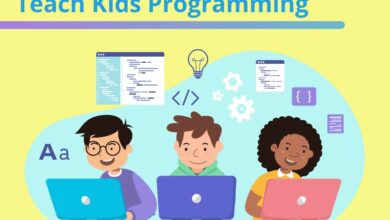IMPORTANCE OF EARLY LEARNING

Table of Content
Early childhood, from birth to eight years of age, is a very important stage in all areas related to learning and child development. Therefore, it is very important that all the people involved in raising a child – their parents, grandparents, friends, or neighbors – help them successfully move towards good development.
Early learning
Scientific studies ensure that the human brain is fundamentally structured before 3 years, and 80% before 8, so it is essential to stimulate the learning of children. The theory of early learning proposed by Glenn Doman is based on a simulation program that achieves the correct neurological organization of the child through systematic sensory stimulation.
We put this theory of early learning into practice through programs for students from 0 to 3 years old and for students from 3 to 6 years old. We use methodologies developed by our education professionals, counting on the advice of other experts in the field.
With these didactic interventions, we enhance attention, visual and auditory memory, vocabulary expansion, the use of logic, problem-solving, and decision making. The exploration and knowledge of the world around us is also encouraged, the taste for art, classical music, languages, and poetry is stimulated.
The child is introduced into the world of colors and forms with specific tools for child development: videos, cards, books with colored images, and auditions of classical music and voices from the real world.
Why support early learning?
One of the reasons is; because at this stage, there is a greater number of neural connections that facilitate the development of children.
Since pregnancy, brain cells, better known as neurons, multiply rapidly. To be more exact, they multiply at a speed of 250,000 neurons per minute. That means that when a baby is born, it has 100 billion neurons, a number that basically equals almost the total of the stars in the universe. Now, during the third trimester of gestation, the brain establishes the synapses that facilitate the connection between all these neurons, thus generating the neurological pathways that are the basis of human development.
Synapses are essential for developing things like the senses, learning, feelings, and healthy behaviours.
In addition, they also respond to parenting and care processes sensitive to the needs of children, such as nutrition, stimulation, health, social protection, and early learning.
What does this mean?
It means that as these neural connections occur so early and respond to the processes of parenting, the first years of life are considered by neuroscience as a fundamental period. This highlights the importance of supporting early learning in order to solidify, in this way, lifelong learning processes.
Precisely for this reason, it is said that the brain of children at this stage retains everything, including experiences and interactions with the surrounding environment, good and bad, a fact that directly impacts their physical, psychosocial, emotional and of course, the cognitive. Advances in neuroscience also indicate that the first years of life are essential to establish the basis of human development sequentially, where newly acquired skills are built on previously solidified skills.
All these data suggest that the earlier learning opportunities begin to be offered, the better results will be obtained in the long term.
Everything a child sees, touches, tastes, hears and smells, shapes his brain at this stage to allow him to think, feel, move and learn all those things that build him as a human being. Exposing them to early learning then means giving them an opportunity for optimal development, an opportunity for them to learn to listen, share, coordinate, jump, play, talk, create, and be autonomous from all points of view.
Self-education
The child learns himself, without the participation of the school or parents. He also makes the decision to switch to this form of training on his own, after the 9th grade.
Who is suitable for homeschooling?
There can be many reasons to choose to home school. Here is some of them:
- The student lags behind the program or, conversely, is far ahead of it.
- He has difficulty communicating with peers. Or is he just a shy introvert who is much more comfortable studying alone.
- The child survived the persecution and does not want to return to school.
- He is engaged in sports or creativity on a professional level – acts in films, takes part in competitions and contests, and so on.
- The student lives where there are no schools.
- The family travels a lot and does not stay for long in one place.
- Parents have their own vision of how and what the child should learn. And it does not coincide with the position of the school.
Who better not switch to homeschooling?
Homeschooling may seem like an idyll. But in reality, this format is not suitable for everyone. Here are a few reasons to refrain from this:
- The child needs daily communication with peers, he is bored at home, and he does not tolerate isolation.
- The child is much disorganized and without constant strict control quickly relaxes and refuses to do anything.
- Both parents work hard, they don’t have time to deal with the child – after all, with family education, they will have to take on all the functions of a teacher. Unless, of course, they are ready to pay a large sum for alternative schools or private lessons.
- The family does not have enough strength, patience, and pedagogical skills to build the educational process at home.
- Parents have financial difficulties. Homeschooling is more expensive than school, especially when it comes to family education.
- The child does not have suitable conditions for studying outside school. For example, a small living space, many brothers and sisters of different ages, the house is noisy and restless.
The importance of early child development
Every conscious parent understands how important it is to develop a child and do it right. Only in this way can one lay the foundation for a successful future. From birth, the child needs training and education of the best qualities, as well as the formation of skills that are necessary for him to adapt in society.
After the baby is born, parents begin to instantly make plans for the future. They want their child to grow smart, independent, and purposeful, to achieve great success in their studies, careers, and personal lives. The scientific world says that it is up to six years that the human brain perceives information from the outside, best of all. That is why it is so important to develop a child and do it right in order to cultivate useful knowledge in him and contribute to versatility.
Early development is not only mathematics, reading, and writing, or their basics. The child needs to be taught skills and knowledge that will be useful to him in everyday life. At the moment, there are many effective teaching methods and techniques. It is advisable to use them all a little. In this case, you can achieve the maximum effect. It is important to consider the individual characteristics of the baby, his character, preferences, and opportunities. You cannot demand more from the child than he can give.
Responsibility for raising a child and his full development lies entirely with the parents. From what will be laid in the early stages of growing up, it depends on how sociable the child will be, open to everything new, smart, attentive, and able to fend for himself and comprehensively developed. All the skills described above will undoubtedly come in handy in a future life and help to become a happy and successful person.
Conclusion
As we see, early development is an indispensable part of life, without it, it will be difficult to discover your baby’s talents. From the first days of life, a mother gives her child care, attention, and basic behavioral skills. After 2 years, the baby can be enrolled in special courses of early development. Such classes will help to discover and develop the child’s talents. learn to interact with other children, and develop their “IQ”. Children are the most important part of a parent’s life; study with your children, and they will certainly grow up to be smart and educated people.
The early age in children is very important. The development of young children does not imply the creation of a genius. but the laying foundation for further education, so that the child has a healthy body, an inquisitive mind, and quick wit.




